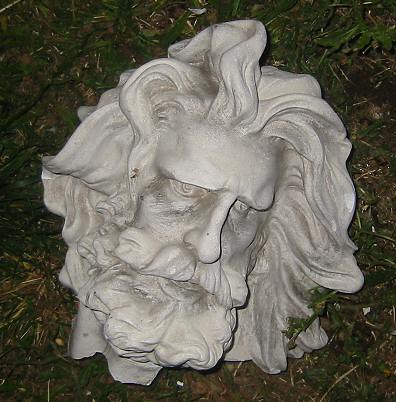Up to my neck in mediocrity
Ah, Friday night.
If you're not on a date, or actually doing something, then sit back as I tell you why I love the movie Amadeus.
Let me start out by saying that I've never seen the play. The local Junior College (I was about to type JC, but decided people might think I have a regional savior) recently ran a production, but I was not to be found.
If you are not familiar with the movie, it is the story of Salieri, an Italian composer who was previously in the employ of the Emperor of Austria, confessing his sins to a priest. He blames himself for Mozart's death. Mozart, although featured at least as often as Salieri in the film, really has little to do with the substance of the story - he is simply a literary vehicle to describe excellence. This stands in contrast to the theme of the movie: mediocrity.
In my head, the play involves only two characters - Salieri and the priest. And in fact, the priest is superfluous. In my mind, the whole piece could be done as a one man show, or an extended soliloquy.
Although he receives the praise of the people and the emperor, Salieri recognizes his own limitations. And he is just talented enough to recognize genius in another - Mozart. And thus begins the conflict.
Salieri asks: "All I wanted was to sing to God. He gave me that longing... and then made me mute. Why? Tell me that. If He didn't want me to praise him with music, why implant the desire? Like a lust in my body! And then deny me the talent?"
Do you remember the first time that you realized that you weren't going to be a rock star? The first time that you became a small fish in a huge pond? The first girl that you lost to someone else, and were able to admit that she would be happier without you?
Salieri becomes Nietzsche's "last man" at the end of the film, declaring himself the "patron saint" of mediocrity. He tried to laugh at God, but ended up miserable and forgotten in an asylum. And this in contrast to Amadeus who appears to be consumptive, an alcoholic and a real asshole. All of these qualities are ultimately lost on Salieri who can only see God speaking through this "little man".
It is a cautionary tale, in some ways, but also a liberating one. If you are able to accept that there are people who are better than you in nearly any way that you wish to mention, then you can melt into oblivion and not be expected to outperform yourself. But to believe that you deserve to be more gifted than you are invites madness.
Life is about knowing your limitations but not being afraid to expand on your strengths. It's a constant struggle between the narrow and wide paths. That it is such a precarious journey in life is what fascinates me; that it is so well told in Amadeus is what makes me love the movie.
I'm pretty happy with my life, but sometimes I daydream...
...then come back and know that if I were going to do those things then I would have done them. While the past makes the present, you may not blame the present on the past. I've made my decisions, and I was no Mozart. I'm happy being the king of mediocrity. Or at least tepid about it.


1 Comments:
"While the past makes the present, you may not blame the present on the past" --EXACTLY. And an incredibly psychologically healthful way to think.
I think the key really is to shine in what you're good at. The problem- in my case, anyway- is discovering exactly what that is. The things I'm passionate about I'm just not that good at.
I've never seen the movie but have wanted to for quite some time! Maybe I will now...
Post a Comment
Subscribe to Post Comments [Atom]
<< Home